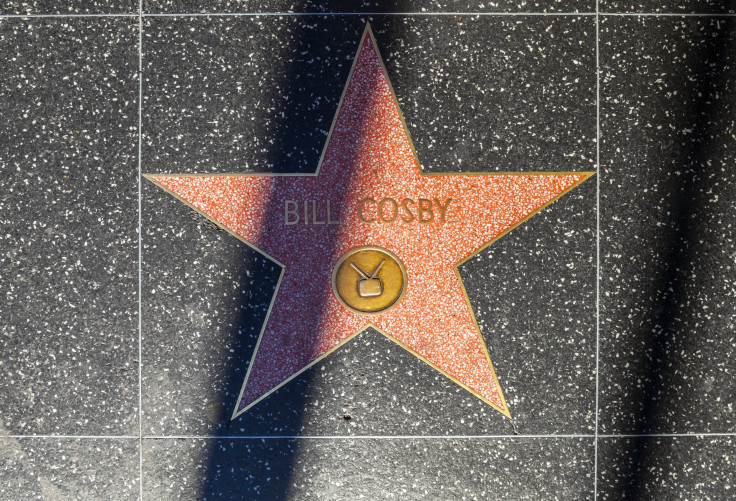Bill Cosby's Rape Allegations And Just World Theory: Why We Tend To Blame Sexual Assault Victims, According To Psychology

“You know there are ways not to perform oral sex if you didn’t want to do it,” CNN’s Don Lemon told Joan Tarshis, a woman who recently accused Bill Cosby of sexual assault from when she was an aspiring actress in 1969. By asking Tarshis Tuesday why she didn’t just bite Cosby’s penis, Lemon implied that she could have prevented her assault, if she had really tried. Unfortunately, Lemon isn’t the first to suggest that sexual violence was the direct result of a victim’s actions. Psychologists believe that our inability to sympathize with victims of rape, as well as other tragedies, can be actually explained by something called “The Just World Theory.”
The Cosby Rapes
To date, The Atlantic reported that six women have officially accused Bill Cosby of sexual assault. The first victim to step forward, Andrea Constand, did so over 30 years ago, and most recently, world-famous super model Janice Dickinson shared her tale as well. Still, despite the victim's testimonial, rather than viewing Tarshis and her fellow victims' assaults as unsolicited acts of violence, the news anchor tried to find the blame in the victims.
“Meaning the using of the teeth … as a weapon,” Lemon told Tarshis, as reported by The Huffington Post. Unfortunately, the news anchor isn’t alone in his rape victim-blaming.
Questions such as What were you wearing? and What were you doing walking alone at that hour? and How much did you have to drink? are so often said to victims of sexual assault that they don’t even register as being out of the ordinary. Psychologists believe this need to somehow blame the victim for her own attack is not just cultural but actually a psychological survival mechanism.
We Live In A Just, Fair World
According to the Just World Theory, as humans we need to believe that the world is a fair, predictable, and just place where we all get what we deserve. In order to rationalize violence, the theory suggests that people subconsciously hold on to the belief that bad things don’t happen to random people. They happen because people must have done something to deserve it.
Examples of this, as provided by Psych Central, would be deriding people whose homes were destroyed by a tornado or flood for choosing to live in a disaster-prone area. In the case of Tarshis, we see it as blaming the victim for not being smart enough to use her teeth as a weapon against her assaulter.

Social psychologist Melvin Lerner conducted a study in where he told students that a fellow student had won the lottery. He reported that the subjects tended to believe that the student who won the lottery had worked harder than those who had not won, when in actuality the drawing was arbitrary.
Later he showed a videotape where it appeared that “participants” were receiving electric shocks. Upon interviewing the subjects who had viewed the tapes, he observed that they tended to form lower opinions of those who were being victimized. From this, Lerner concluded that “the sight of an innocent person suffering without possibility of reward or compensation motivated people to devalue the attractiveness of the victim in order to bring about a more appropriate fit between her fate and her character."
According to Lerner’s study, when observers are not able to adequately compensate an innocent victim, they will show disdain for this victim by reasoning that her fate is a deserved punishment for a bad character trait, or that the victim has inflicted the fate upon herself through her behavior.
Dr. Claudia Dalbert, a psychology professor at Martin Luther University in Germany further sums up this explanation when she wrote in her essay, "Belief in a Just World,": "When people are confronted with the victim of an unjust fate, blaming the victim seems to be a crucial element in the defense of their belief in a just world."
Where Does It Come From?
Experts are not sure where the Just World Hypothesis came from, just as they are not even able to prove that it actually exists. There are, however, traces of it in the Bible, such as in the Book of Job where passersby suggest Job must have done something terrible to have deserved his misfortunes.
Others suggest it comes from man’s natural disdain for viewing himself as a victim. For example, when hearing of a crime, he will blame the victim’s actions and go on thinking that as long as he avoids these actions, he will never be a victim himself.
Others believe it is simply a way to cope with all the constant injustices we are faced with every day. It’s our way of making sense of all the senseless crime, violence, and tragedies.
Source: Lerner MJ, Simmons CH.Observer's reaction to the "innocent victim": Compassion or rejection? Journal of Personality and Social Psychology. 1966.



























